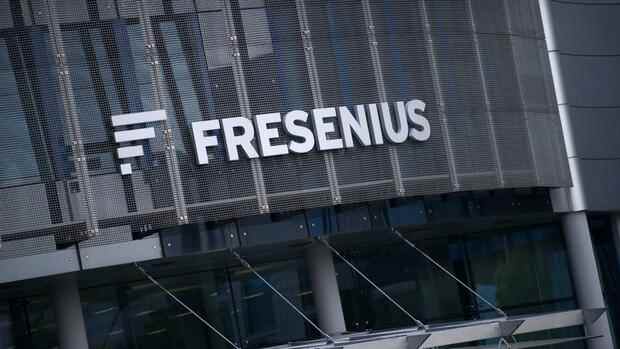After making progress on its cost and efficiency program, the company plans to keep costs down.
(Photo: dpa)
bad Homburg After a final sprint, the Fresenius healthcare group has achieved its goals for 2021 and sees itself on course for growth in the current year. “We expect further profitable growth for 2022 – despite rising inflation and ongoing burdens from the pandemic,” said CEO Stephan Sturm when the balance sheet was presented on Tuesday.
“We are making faster progress than originally expected with the implementation of our cost reduction and efficiency program. This is one of the reasons why we can confirm the medium-term growth targets we set before the pandemic.” Sturm wants to stick to the Fresenius group structure after questioning it a year ago.
By 2023, Sturm now expects annual savings of at least 150 million euros after taxes from the savings program he has prescribed instead of more than 100 million euros. For the current year, he forecast a currency-adjusted increase in group sales in the mid-single-digit percentage range and an increase in adjusted net income in the low-single-digit percentage range.
Headwinds come from cost inflation and supply chain bottlenecks. Sturm also expects further burdens from the pandemic, but expects that the number of corona cases will decrease from spring and that the number of treatments that can be planned and the availability of staff will improve.
Top jobs of the day
Find the best jobs now and
be notified by email.
The advantages of the “proven group structure” should continue to be maintained, as Sturm now explained. “Fresenius remains a diversified healthcare group” that will be rebuilt with “a sense of proportion”. At the same time, Sturm wants to open up “new sources of capital” for Fresenius: For larger growth steps, especially at the clinic subsidiary Helios and the service division Vamed, Fresenius is ready to open up to external equity at the level of the corporate divisions. A capital increase of the holding company is not necessary. The infusion manufacturer Fresenius Kabi has the highest priority in the group’s capital allocation because of its “excellent growth prospects”.
The pandemic is putting a significant strain on dialysis subsidiary FMC
Last year, Fresenius brought in sales of 37.5 billion euros, an increase of three percent. Adjusted for currency effects, there was an increase of five percent. Adjusted net profit increased by four percent to 1.87 billion euros. The dialysis subsidiary FMC, which is listed in the leading index Dax like Fresenius, had to struggle considerably with the consequences of the corona pandemic, because dialysis patients in particular are more susceptible to Covid-19. However, as a result, excess patient mortality fell in the fourth quarter.
FMC’s sales for the full year fell by one percent to 17.6 billion euros, currency-adjusted it increased by two percent. Net income fell 25 percent to $1.018 billion. For 2022, FMC expects sales growth and an increase in net income in the low to mid single-digit percentage range.
Despite the losses, FMC shareholders are to receive a dividend of EUR 1.35 per share, which is one cent higher for the past year. Fresenius wants to increase the dividend by four cents to 92 cents per share, but is planning an optional dividend that should give shareholders the opportunity to exchange the distribution for shares in the company. The Else Kröner Fresenius Foundation, which holds 27 percent of the group, wants to participate fully in this.
More: Investors are hoping for a signal that Fresenius will split up
